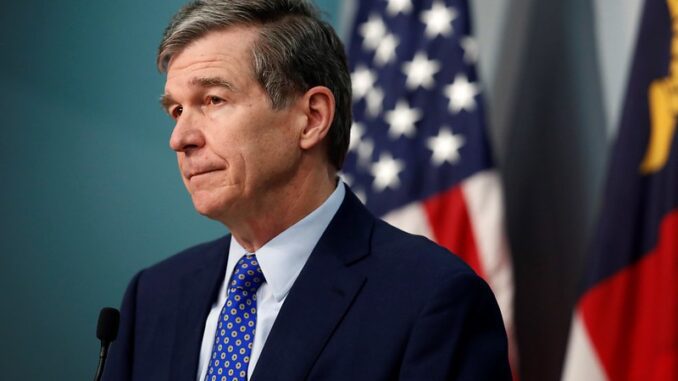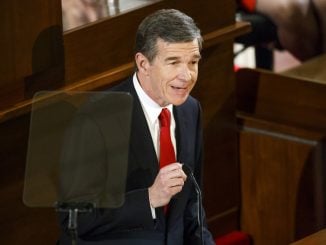
RALEIGH — The topic of Democratic Gov. Roy Cooper’s statewide COVID-19 state of emergency is being raised again by top Republican lawmakers in the state, but this time with support from their Democratic colleagues.
House Speaker Tim Moore (R-Kings Mountain) and Senate Majority Whip Jim Perry (R-Lenoir) recently appeared on Marc Rotterman’s show “Front Row,” where discussion included ending Cooper’s statewide emergency (SOE) which has now passed the 800-day mark. North Carolina is just one of a few states that still have such an order in place.
Their Democratic counterparts, Rep. Robert Reives (D-Chatham) and Sen. Dan Blue (D-Wake) were also participants in the show and both agreed it was time to lift the state of emergency, with Reives adding that “we need to work together to put things in place to protect us.”
“It’s now been over 800 days since @NC_Governor unilaterally put North Carolina under a state of emergency,” House Majority Leader John Bell (R- Wayne) said in a tweet with the clip of Rotterman’s show. “I’m glad that #ncga Democratic leadership now agrees it’s time for Governor to end his emergency order & allow our state to move forward.”
Moore had also tweeted about Cooper’s SOE passing 800 days, asking “Why won’t he end it?”
The answer may lie in a letter sent to lawmakers by N.C. Department of Health and Human Services Secretary Kody Kinsley back in March. At a COVID-19 briefing that month, Cooper attempted to pass the buck on ending his own state of emergency, alluding to what were essentially quid pro quo legislative requests contained in Kinsley’s letter.
“We presented to the General Assembly laws that they can pass so that they can end it. So, not a big deal,” Cooper said at the March briefing, marking the first time he had claimed the General Assembly could end his own SOE.
Over the last year, the Cooper has insisted the SOE was needed to “draw down federal funds.” North State Journal was unable to substantiate the governor’s claim and state or federal elected officials who spoke to our outlet could not identify any federal COVID-19 relief funds that require a standing statewide emergency declaration.
Kinsley’s letter, addressed to House Speaker Tim Moore (R-Kings Mountain), did not mention drawing down federal funding, but instead claimed Cooper’s SOE “provides practical and necessary tools as we manage COVID-19,” as well as “legislation needed for mitigation,” such as changes to healthcare licensure and regulation.
With rumors of negotiations on Medicaid expansion being a possibility during the short session, it is possible Cooper’s continued SOE could become a point of leverage in moving that debate forward.



